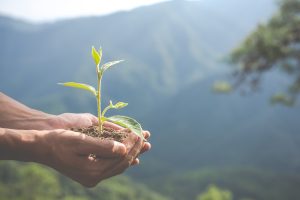On October 22, 2021, Resolution No. 674/2021 (the “Resolution”) was published in the Official Gazette, creating the “Soluciona Verde Program” under the Secretariat of Industry, Knowledge Economy, and Foreign Trade Management of the Ministry of Productive Development.
Soluciona Verde Program
The main objective of the Soluciona Verde Program is to “provide financial assistance to legal entities in order to contribute to the environmental sustainability of production through the development, implementation, and/or adoption of innovative solutions, products, and/or services related to the Knowledge Economy.”
By signing the 2030 Agenda, the Argentine Republic recognized that social and economic development depends on the sustainable use and management of natural resources, as well as that public financing will be necessary to meet the Sustainable Development Goals and Targets.
The program seeks to support the development of projects that consider the guidelines of Circular Economy Production and Consumption; Renewable and Environmentally Friendly Energy and Mobility; and Humane, Inclusive, Safe, and Sustainable Cities and Communities.
Program Beneficiaries
The Resolution establishes the following legal entities as beneficiaries: companies, civil associations, foundations, mutual societies, and cooperatives. It also includes universities, state-owned companies, and public bodies or entities expressly excluded from the centralized national, provincial, or municipal public administration.
Beneficiaries must fall into one of the following categories:
- They carry out activities within the Knowledge Economy sector and present projects for the development and/or implementation of technological and innovative solutions to promote environmental sustainability in productive activities.
- Belong to traditional industrial sectors and carry out projects to incorporate new technologies and/or activities of the Knowledge Economy, which require the development of engineering and design capabilities and/or the acquisition of technical information, patented inventions, or know-how and capabilities that enable the development of improved or new solutions, processes, products, and/or services that promote environmental sustainability in the productive activities carried out. Innovative solutions may be included that require scientific, technological, organizational, and commercial developments that involve developing improved or new solutions, products, and/or services that contribute to the environmental sustainability of productive activities through the acquisition and implementation of new knowledge.
Project sustainability
Projects must develop three specific sustainability objectives, at least one of which must be Environmental Sustainability.
- Specific Social Sustainability objectives:
- Job creation.
- Equality and social inclusion.
- Specific macroeconomic sustainability objectives:
- Foreign exchange savings, either through the generation of new exports or the substitution of imports.
- Development of national value chains.
- Specific environmental sustainability objectives:
- Sustainable transport and supply.
- Optimization of waste and effluents.
- Use of renewable energy and/or improvement of energy efficiency.
- Optimization of water footprint and carbon footprint.
- Circularity of the production cycle.
- Reuse and recycling of inputs and products.
- Development of products based on biodegradable materials or that propose a situation with less environmental impact.
Each applicant must indicate on the Registration Form the indicators they will use to measure the sustainable impact of the project, as well as its base value and expected effect.
The Resolution establishes that “Legal entities that participated in the 2020 call for proposals for the ”Soluciona. Reactivación de la Economía del Conocimiento“ call for proposals and whose project has been rejected or received an unfavorable ruling may only apply to the current call for proposals if they do not have any appeals or hierarchical remedies pending, or if their rejection is final and the applicant waives the right to file a legal claim for such administrative acts denying the benefit.”
Uses of Benefits
Funds granted as ANR may only be used for the following items, which must be related to the project’s objective and required to fulfill it:
- Acquisition of fixed assets.
- Adaptation of civil construction works required for the execution of the project.
- Acquisition of intangible assets.
- Acquisition or financing of working capital directly associated with the development of the project presented.
- Acquisition of labor, technical, and professional services.
- Non-personal advertising and publicity services, which may not exceed five percent of the requested ANR.
- Certification and licensing expenses related to declarations, permits, certifications, licenses, and other authorizations and procedures required to develop the project, in accordance with current national, provincial, and/or municipal regulations applicable to each project.
On the other hand, the ANR may not be used to cover any of the following items:
- Purchase and/or rental of real estate.
- Acquisition of vehicles, transport and traction equipment.
- Furniture: office equipment, furniture, and other generic items.
- Payment of salary, social security, financial, or tax obligations.
- Payment of public services, taxes, fees, and contributions.
- Any type of expenditure intended for the payment of social obligations, withdrawal of partners, and/or distribution of dividends, or those that involve direct or indirect participation in the capital stock of a different company.
- Debt restructuring.
- Payment of investments made prior to the approval of the project.
- Contributions in kind.
- Acquisition of used goods.
- Any unnecessary expenditure that is incompatible with the achievement of the results envisaged in the project, according to the activity and procurement plan presented in the registration form.
- Project management expenses.
- Travel expenses.
- Freight costs.
- Import expenses.
- Surety insurance or insurance in general related to the project.
Project Submission
Legal entities must submit the project along with the required documentation through the Remote Procedures Platform (TAD), under the name “PROGRAMA SOLUCIONA VERDE.”
Prior to the approval or rejection of the project, the Undersecretary of Knowledge Economy, or whoever it designates, may request a report on the feasibility of the project submitted to any agency it deems appropriate due to its expertise in the matter.
This measure will take effect on October 23, 2021.




